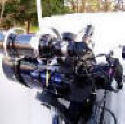|
This
one-semester course is a descriptive survey of and introduction
to the conceptual aspects of astronomy. The emphasis of this
course is on developing observational and predictive astronomy
skills, understanding concepts and applying analytical
reasoning, and not on rote memorization of facts and
figures! Student learning outcomes are:
● Understand the
celestial cycles of the stars, the Sun, the Moon, and of the
planets.
● Compare/contrast features of the geocentric and heliocentric
models of planetary motion, understand the scientific
method, and how it was applied in the historical triumph of
heliocentrism over geocentrism.
● Explain how optical and radio telescopes work.
● Explain properties of planets, rings, satellites, and debris
(asteroids and comets).
● Explain the evolution of the Sun and planets from their
origins to their present state.
● Quantify properties of stars, and how these properties are
determined and explain how stars are born, live, and die.
● Explain properties and evolution of binary stars and compact
companions.
● Explain properties and evolution of our Milky Way galaxy, and
of other galaxies.
● Explain the history of our universe, current theories, and
their supporting evidence.
● Discuss the state of investigating the extraterrestrial
hypothesis, and/or other topics at the forefront of astronomy
research. |
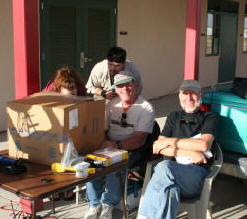
Tom Smith and Russ Genet
set up equipment
for the transit of Mercury across the Sun |
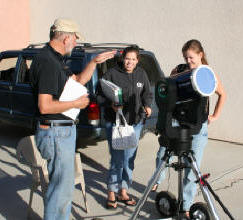
Russ explains the observational process
to North County Astronomy Students |
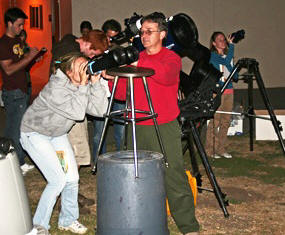
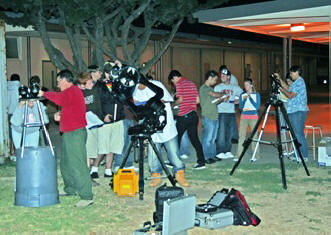
Bowen Observatory Manager Robin White assist
students observing the moon during a class "star party"
at South County Center in Arroyo Grande
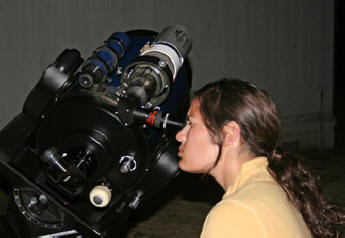
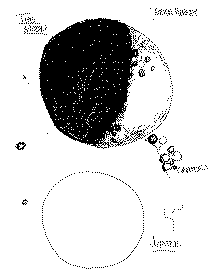
South County students observe through
Robin's 10" Meade telescope and made drawings of their observations
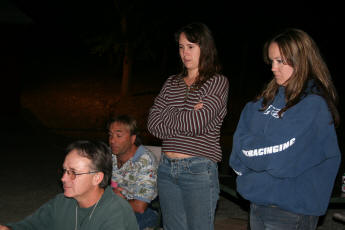
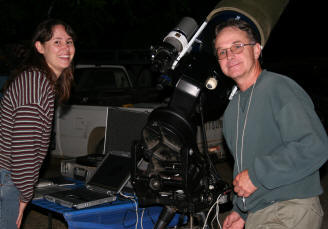
Robin White shares his skills in astrophotometry
with Astronomy 10 students at a student "star party"
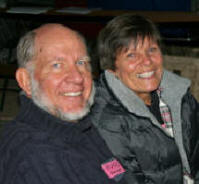
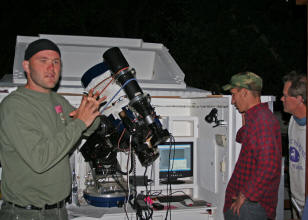
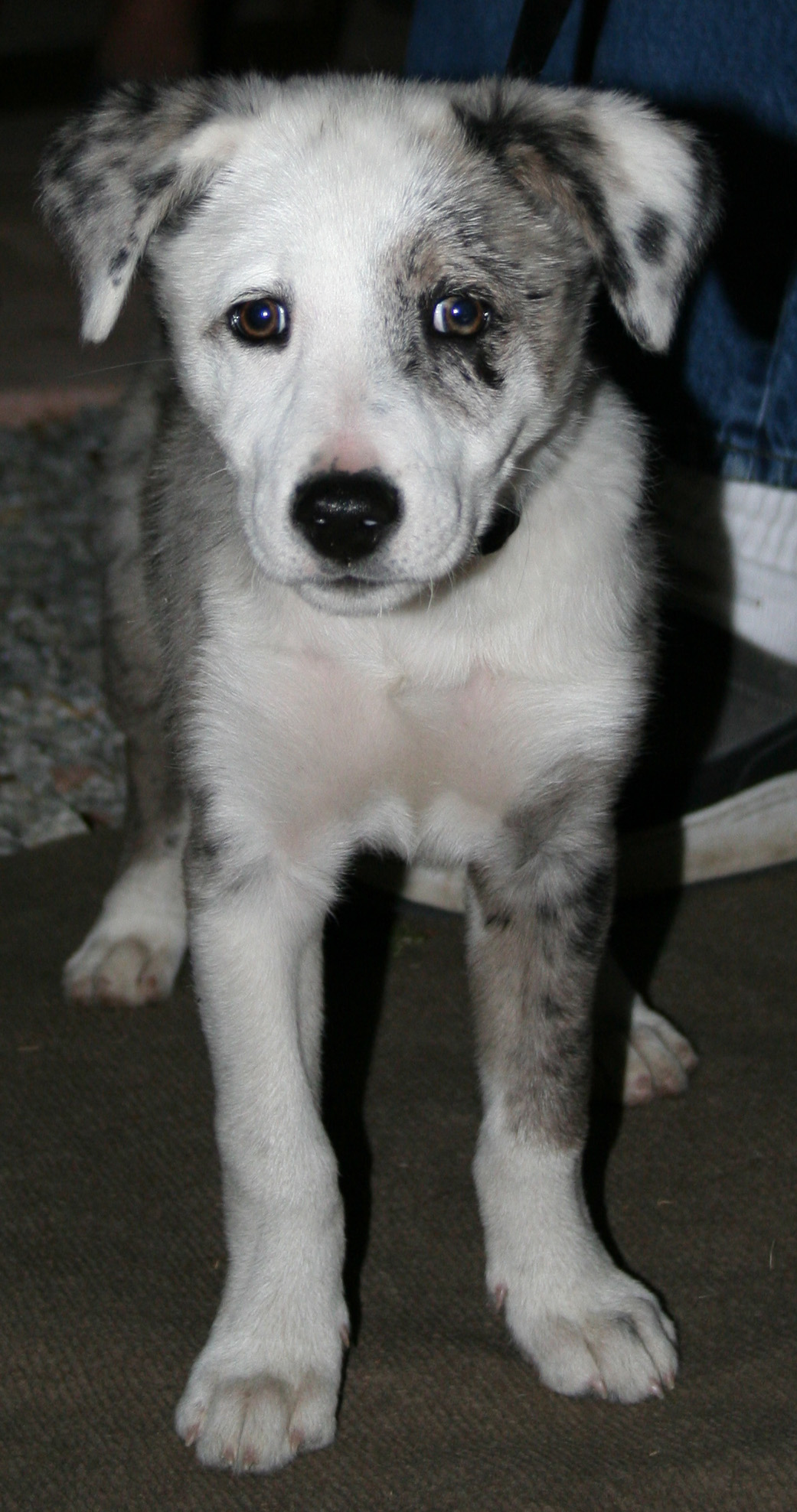
Russ and wife Cheryl (left) host student star
party at the Orion Observatory. In the center picture, students
Noll Roberts (left) and Casey Milne (center) share the observational
skills in CCD photometry they have
learned using the observatory's 10" Meade telescope equipped with
a CCD camera, with Derrick LaVoie, a
biology
instructor at Cuesta College (right). Even puppy Charlotte, a
favorite guest at the party, enjoyed the activities.
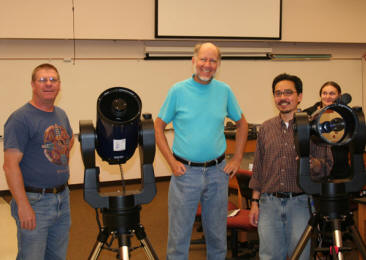
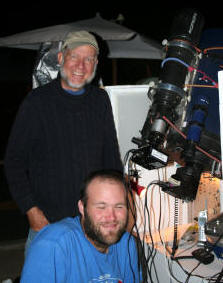
In the left picture, Tom Smith, Director of the
Dark Ridge Observatory (left), and Professor Pat Len,
astronomy
and physics instructor at Cuesta College (right), lend a skilled
hand as Russ (center) assists
students in understanding and
using observational telescopes. In the right picture,
Russ and
Noll Roberts take a moment from their work at the
Orion Observatory to pan for the camera.

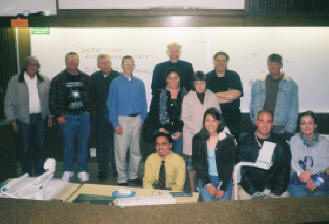
Students and guests in Russ' Astronomy class
on Cuesta's San Luis Obispo campus during an Astronomy Symposium.
Students organized, publicized, and presented their own symposium at
which they gave the
astronomy papers they researched and wrote during the semester and bound
into a symposium proceedings.
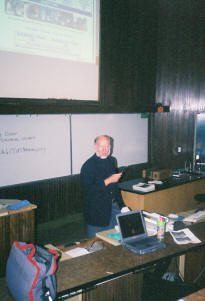
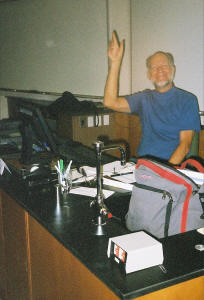
Russ lecturing and at his desk during his North County
Campus Astronomy class |

